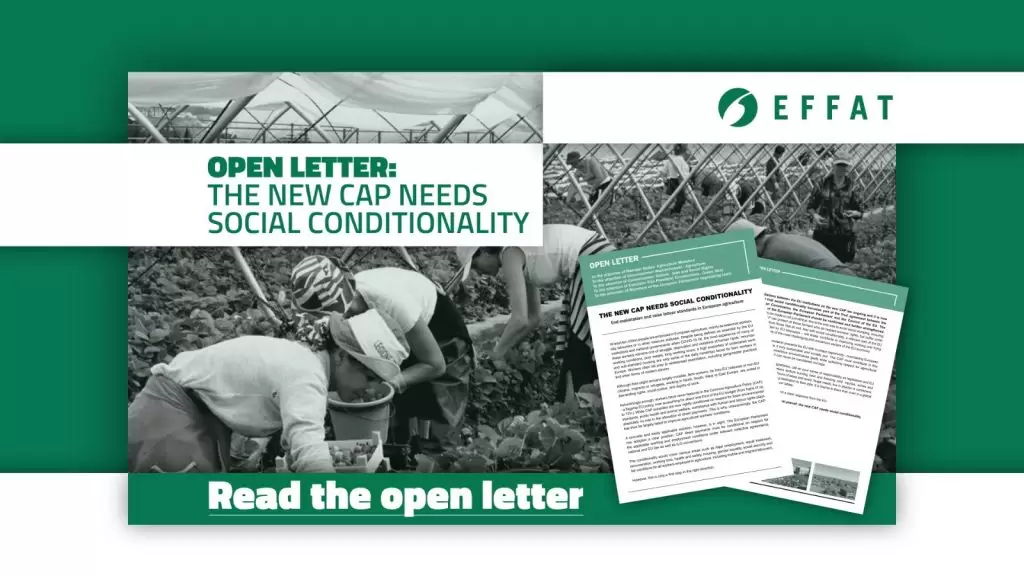One demand that could improve millions of workers’ lives in European agriculture:
Social Conditionality in the new Common Agriculture Policy (CAP)
At least ten million people are employed in European agriculture, mainly as seasonal workers or day labourers or with other insecure statuses. For the vast majority, the lived experience is one of struggle, poor wages, deplorable housing and various labour abuses.
So far, the Common Agriculture Policy (CAP) – a flagship EU policy, now accounting for about one third of the entire EU budget, has miserably failed to improve agriculture workers’ conditions. In fact, while CAP subsidies are conditional on compliance with basic environmental standards, public health and animal welfare, respect for labor and human rights plays absolutely no role in the allocation of direct payments.
As the European Commission, the European Parliament and national governments negotiates the reform of the Common Agricultural Policy for the period 2021-2027, EFFAT is clear: we want a socially just CAP that respects workers. Social conditionality is the solution! Not only would it raise labour standards for workers, but it would also reduce unfair competition, a benefit to farmers who may be undercut by others who do not comply with labour rules.
A broad coalition of over 300 global, European and national trade unions, NGOs, CSOs and individuals has joined EFFAT’s call for social justice in agriculture in an open letter addressed to national Agriculture Ministers, key Commissioners and Members of the European Parliament involved in the negotiations.
The COVID-19 pandemic has cast new light on the challenges of farm workers and on how unsustainable our food system is. Policy makers and all of Europe now have an extraordinary opportunity: to stop exploitation in agriculture and to ensure justice for agricultural workers. Let’s not miss this chance!
